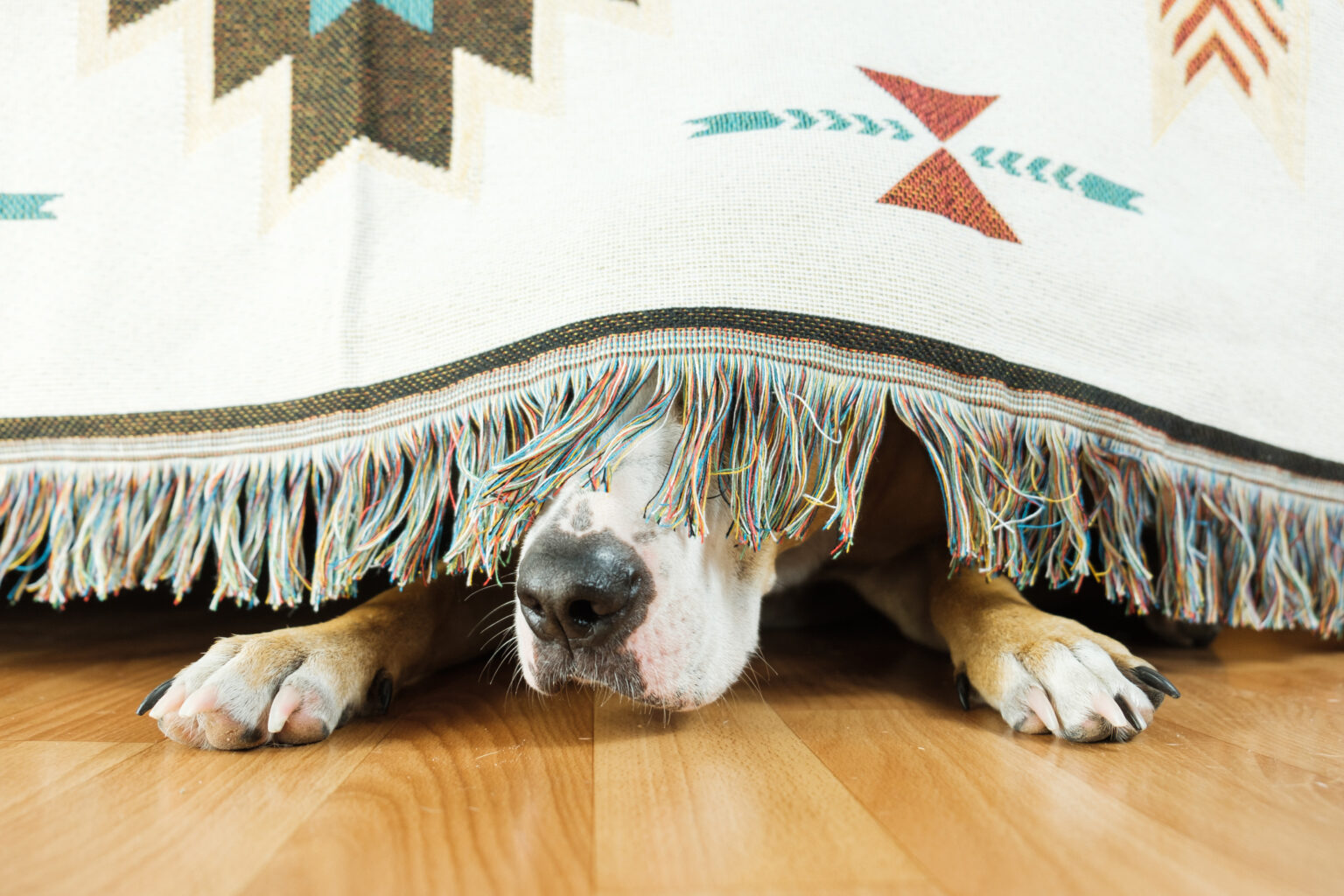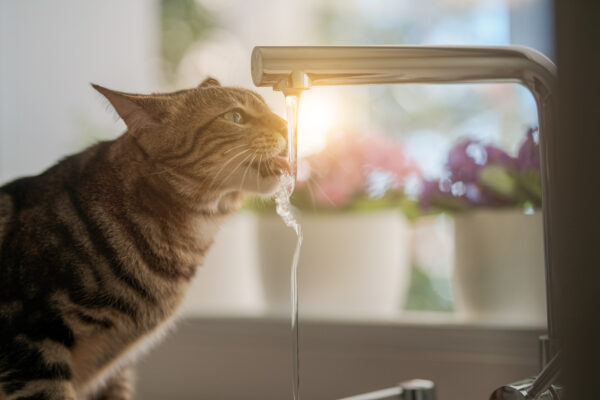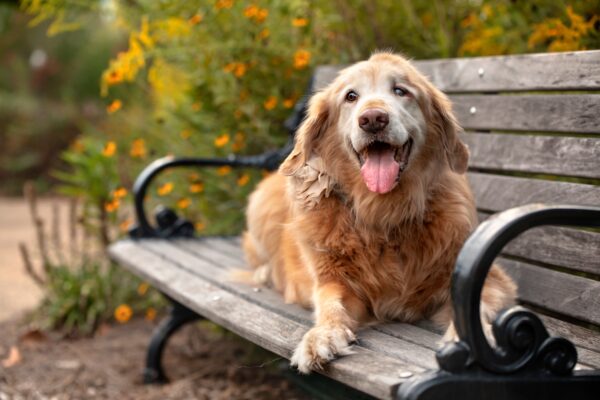It’s Christmastime! The one time of year when celebrations just come naturally, with champagne corks popping, party poppers going off, music, loud chatter, family and friends, lots of bright Christmas lights…
Sometimes it’s easy to forget that our pets probably aren’t enjoying this as much as we are. The overabundance of stimulation can leave them in a state of anxiety, craving somewhere quiet and peaceful, barking and hissing in panic as another loud noise leaves them fearful.
When your pet starts to exhibit signs of anxiety, sometimes it can be tempting to rush over and mollycoddle them but this can send out the wrong signals.
Signs of anxiety
The classic signs of anxiety and stress in pets are quite obvious to identify:
Dogs:
- Tails between legs
- Panting
- Ears pinned back
- Standing close to doorways/ trusted family members
- Growling
Cats:
- Dilated pupils
- Ears pinned back
- Tail twitching/ waving/ not raised in greeting
- Running around the room/ seeking an exit with their body low to the ground
- Hissing
Displacement behaviour
This is trickier to recognise. Displacement behaviour tends to be exhibited when your pet would rather be doing something else, like leaving the room, but is suppressing the urge. They are internally battling with two motives, and as a result, doing little actions and quirks that are out of context (a bit like humans scratching their heads when they are torn between two decisions!). Actions such as licking their chops when no food is present, sudden biting, nibbling or licking a body part, or yawning when they are not tired are a few examples of this type of anxiety.
Avoidance behaviour
A little bit easier to understand than displacement behaviour, avoidance behaviour is exactly that- your pet is avoiding you. Cats in particular will simply walk or move away when they are unhappy. But if not given the opportunity to do so, like dogs, they will turn their heads away from you or look in another direction, hide behind objects, and try to move away. Simply put, they are trying to say ‘I am scared of this situation, please do not hurt me’.
In dogs, similar avoidance behaviours can be seen in actions such as barking whilst backing away and even rolling onto their backs.
How to help a stressed-out pet
Provide a safe space
When everything becomes unfamiliar for your pet, it’s important to establish a small sanctuary for them in amongst all the chaos.
For example, setting your dog’s cage or bed away from where the party will be hosted (but still within eyesight), and covering it with familiar-smelling blankets and a few of their favourite toys will give them a corner of peace and quiet that they can retreat to. Keep bedroom doors upstairs open so cats can wander in and out as they please, keep the litter tray away from noise and commotion, and make sure the cat flap is unobstructed.
Lock up the temptations
If your pet is exhibiting signs of displacement behaviour and is known to do so in the past, it sometimes helps to be aware that they will express these behaviours, and take the precautions to prevent any harm. This can include making sure that bins are safely out of the way, food and plates are not teetering near the edges of tables, chocolates are out of reach, electric/glass Christmas tree decorations don’t hang near the bottom tier of the Christmas tree, and consider the use of child gates to block access to certain rooms.
Exercise or play with your pet
Walking your dog or simply playing with your pets is a great form of stress relief. Bringing them with you if your family takes a Christmas Day walk will allow them to burn off some energy, but also bond with other family members (isn’t the family dog the best member of the Christmas walk anyway?!). If you have a party planned, taking them for a long walk beforehand will use up some of their energy, and if you have an indoor cat, it helps to play with them a bit before people begin to arrive.
Leave them alone if they need space
This one especially applies to cats, but, just like humans, many animals prefer to be left alone for a bit when they are unhappy.
Cats in particular will simply remove themselves from a situation and go and find their safe spaces (or simply a comfy spot!) and remain there, completely at ease with their own company. Forcing a cat against its will to socialise with family and friends will make it deeply unhappy, and it’s often best that you caution children not to seek out the cat to play with if they are in their safe space.
Dogs on the other hand need to have an eye kept on them to make sure that they are not in danger of causing themselves any harm should they become very stressed out, but it’s best that they are left well alone when within their safe space, and only the immediate family whom they are familiar with check on them regularly.
Please be sure to consult with your vet if you suspect your pet has anxiety and may need medication. While our articles are here to help, there’s nothing like the personalised advice from a qualified vet.



